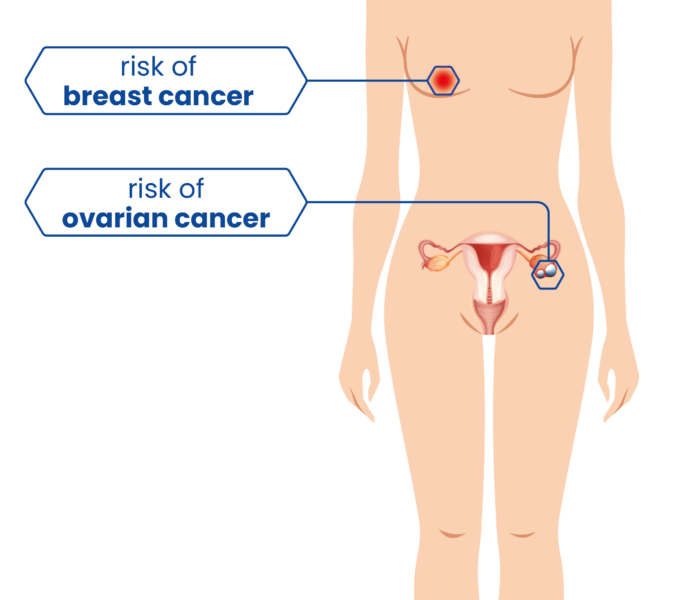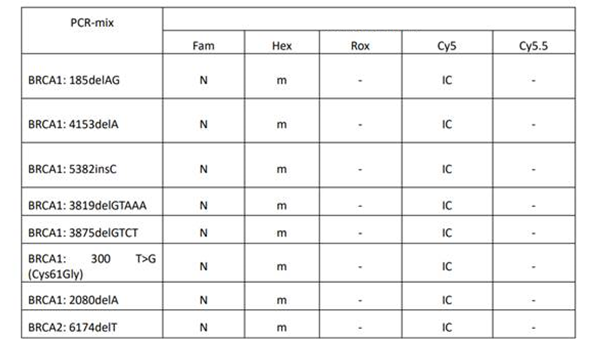BRCA1 and BRCA2 mutation test (PCR)
Individuals with mutations in the BRCA genes, thus carriers of the hereditary BRCA (1-2) gene mutation, have a significantly increased risk of developing many tumours, most commonly breast and ovarian cancer.
Recently, the methods for determining BRCA status have undergone tremendous development, with a variety of services becoming more widely available. It is now clear that BRCA status in breast cancer greatly influences prognosis, the course of care, and last but not least, effective prevention.
In which cases is it recommended to have the test performed?
This test is recommended if you or a relative have a history of BRCA mutation. There is a chance for this
- if you or a family member had breast cancer before the age of 50,
- or ovarian cancer at any age,
- or if a male family member has had breast cancer,
- or a BRCA1 or BRCA2 mutation has been detected in any family member.
What does the test show?
The test detects genetic predisposing factors for hereditary breast cancer and ovarian cancer.
The tumour suppressor genes BRCA1 and BRCA2 encode the BRCA proteins responsible for genome stability, which also regulate homologous recombination as well as cell growth and cell division in the repair of DNA defects. Mutation of both alleles is required for the risk of tumour development and genetic susceptibility.
According to current studies, based on meta-analysis of 10 studies in hereditary breast and ovarian cancer syndrome (HBOC), there is a nearly 57% chance of developing breast cancer before the age of 70 in an individual carrying the mutation in case of BRCA1 gene mutation, while when it comes to BRCA2 gene, it is 49%.
In case of ovarian cancer, also comparing several studies, these numbers might turn out in the following way: 40% risk of developing ovarian cancer in case of BRCA1 gene mutation and an 18% risk when it comes to BRCA2 gene mutation.

What sample is needed for the test?
EDTA (ethylenediaminetetraacetate) blood sample.

What can the result indicate?
The results of the test can be used to diagnose and detect hereditary forms of breast cancer and ovarian cancer. The test examines the carrying of the predisposing gene for hereditary breast cancer and ovarian cancer, rather than the two diseases mentioned.
We examine seven BRCA1 and one BRCA2 genes in the BRCA1-2 mutation PCR multiplex assay in our laboratory.
How to prepare for the test?
Sampling does not require preparation, but genetic counselling may be necessary prior to testing to determine if the assay is warranted.
What to do after the test?
The test itself cannot diagnose any diseases, and in every case, consult a gynaecologist or oncologist to determine the exact diagnosis and necessary treatment.
When is the result expected?
On the 17th working day following the sampling.

